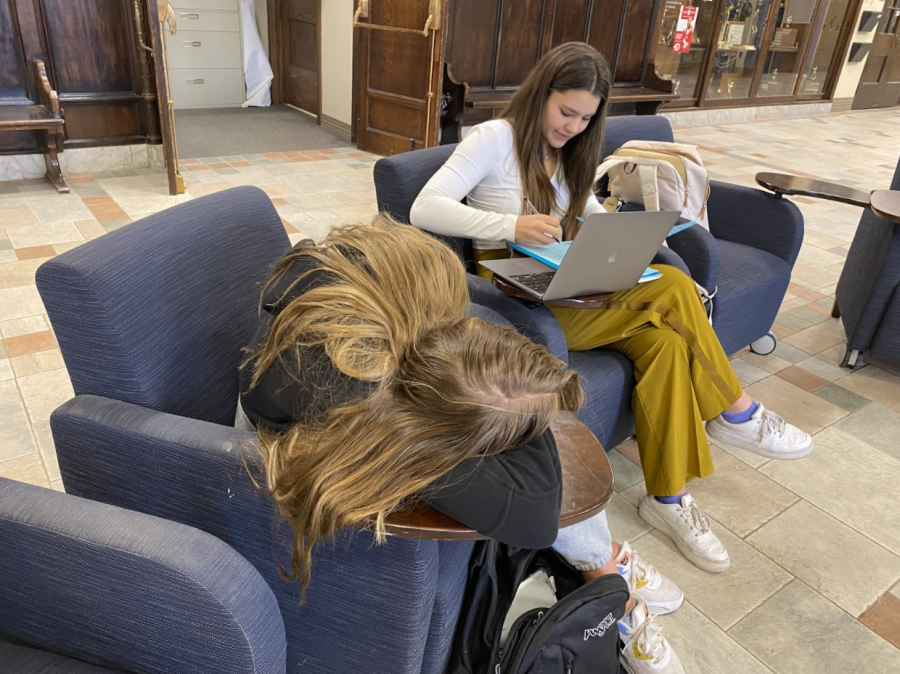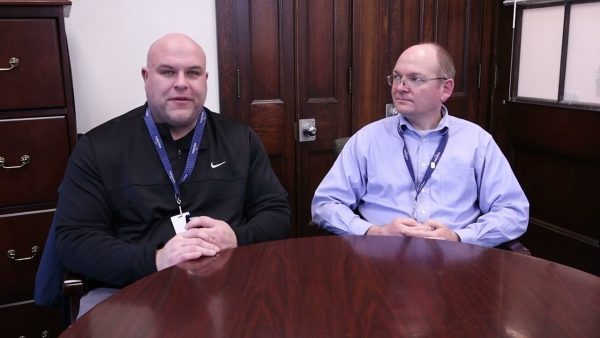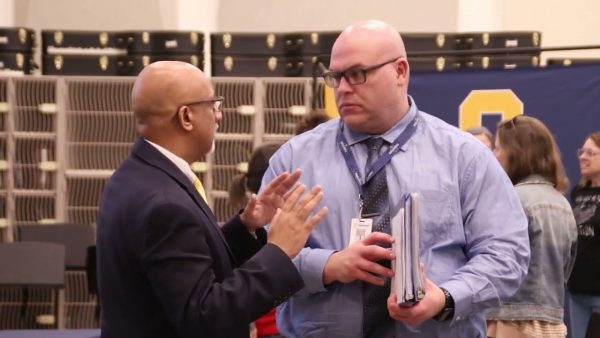Breaking bad behavior
Through the COVID-19 pandemic, a majority of Americans reveal they have developed bad habits
According to a recent poll of Americans of various ages done by Value Penguin, more than 61 percent of Americans have developed bad habits during the COVID-19 pandemic that they wish to work on. Many in grades 9-12 seem to feel similarly, with 81.1 percent of the 37 student respondents feeling they have picked up bad habits during the pandemic.
“Something that harms you, in ways like your health, relationships, or happiness, that you do as a habit and can/should change,” Lillian Oehlers (11) said.
These same polls showed that the bad habits Americans have formed varied heavily. Of students interviewed, 30 percent say that too much screen time was one bad habit they developed, followed by poor eating habits and sleeping too much or too little at 22 percent and 21 percent.
However, statistics from Value Penguin varied heavily from those of student respondents. Of respondents, 78.4 percent of those students said that sleeping too much or too little was a bad habit they formed followed by too much screen time at 70.3 percent and neglecting your mental health at 64.9 percent.
Bad habits are obviously not good for us, but one may wonder how they specifically affect students.
“It can make it hard to wake up in the morning, or give my all during school,” Ronan Tomazic (10) said.
Similarly, many students think a cycle of bad habits can contribute to one another. When worst comes to worst, they may produce a domino effect.
“It’s difficult to focus in school when you’re too tired, and it’s difficult to enjoy your time if you are constantly worrying about the homework you put off, causing you to stay up too late, causing you to be too tired during school,” Dereck Thorpe (9) said.
While many students have bad habits, it is important to know the ways that students are attempting to solve these bad habits.
“I deleted some apps that distracted me too much and picked up more on yoga and going to the gym,” Ellerie Nye (12) said.
While some do things like delete distracting apps and work out more, others think of their future when deciding to break a bad habit.
“Just thinking of the future like, ‘Will this benefit me the next few weeks or will it make it harder on me?’” Elliot Smith (9) said.
Bad habits negatively affect everyone and trying to change them is important to bettering yourself. While this may take a great deal of time and effort, it is beneficial to your future.
“[To get rid of a bad habit you need to] identify the habit you want to replace and then give it 30 to 90 days of change to replace the bad habit with a good one,” Guidance Counselor Kelly Owens said.
Through the COVID-19 pandemic both locally and nationally people think they have developed bad habits that they wish to break. Although many students vary in the bad habits they would like to break, many have said that it has negatively affected their lives and would like to better themselves.







